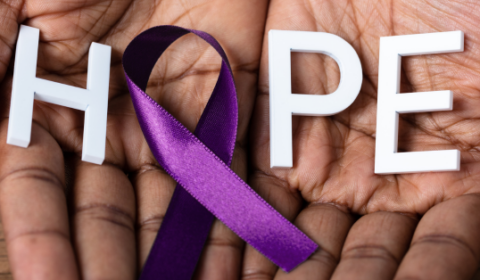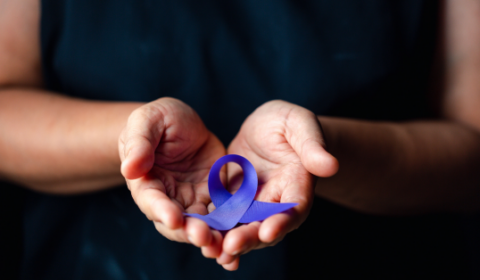 You Can Make a Difference
You Can Make a Difference
Although there is a chance that your support and assistance may be refused when you reach out to a friend or loved one in crisis, you risk little in offering it. Most people in emotional crisis send out warning signs, and those generally translate into a cry for help. If you offer to get involved, the worst that can happen is that you will be asked to mind your own business. The best that can happen is that a person suffering unbearable pain alone from chronic suicidal ideation will now have an important ally.
Ask About Suicide
We sometimes hesitate to ask a direct question about suicidal intentions. Asking does not cause someone to be suicidal, and it will not plant the seed in anyone’s mind. A person showing signs of suicide has already thought about it. By asking the question directly (e.g., “Are you thinking of suicide?” “Do you want to die?”), you are expressing your willingness to talk openly and honestly. Your question will convey that you are willing to listen and that you care. This generally leads to relief for the person in crisis. The worst thing that can happen from such direct questioning is experiencing mild embarrassment, but saving or helping a life is clearly worth that small risk.
 Listen
Listen
People in emotional crisis have a critical need to be heard. Being heard includes being believed, understood, and accepted. Nonjudgmental listening is a valuable skill. Perhaps the person in crisis has no one with whom he can talk. Perhaps he has family and friends, but believes that they do not understand his pain. Discussing a topic as serious as suicide may not be easy, or you may feel uncomfortable with unpleasant topics such as unhappiness, problems, chronic suicidal ideation, and emotional pain. Nevertheless, allowing a friend or acquaintance to talk about her feelings will help break down her sense of isolation and hopelessness. Being nonjudgmental is important. Avoid words like “should, ought, wrong, good, bad.” Even if you do not approve of how your friend is thinking and feeling right now, you will be a much more effective helper by expressing respect and acceptance. Be careful to let the person in crisis do most of the talking. Giving lots of advice and sharing your personal experiences takes away precious power that the person in suicide crisis already lacks.
Do Not Warn, Threaten, or Promote Guilt
People who feel helpless and hopeless enough to want to die do not need guilt or threats to add to their already intense emotions. Sometimes, our tendency is to offer help in the form of “How do you think your children will get along without you?” or “Suicide is wrong.” Remember that people in crisis already feel very bad about themselves. Additional guilt and shame only worsen those feelings. Focusing on the person in crisis and communicating acceptance and concern are likely to be more helpful.
Do Not Dare Someone to Attempt Suicide
People who feel helpless and hopeless enough to want to die do not need guilt or threats to add to their already intense emotions. Sometimes, our tendency is to offer help in the form of “How do you think your children will get along without you?” or “Suicide is wrong.” Remember that people in crisis already feel very bad about themselves. Additional guilt and shame only worsen those feelings. Focusing on the person in crisis and communicating acceptance and concern are likely to be more helpful.
Do Not Dare Someone to Do It
Sometimes we do not take suicide threats seriously, especially when we suspect manipulative behavior. Nevertheless, talk of suicide should never be taken lightly. In particular, reverse psychology — i.e., telling someone to do something in hopes they will do the opposite — does not work and can be very dangerous. Never “dare” someone to attempt suicide!
Do Not Be Sworn to Secrecy
On occasion, people in suicide crisis, particularly young people and teens, will confide in you and then ask you not to tell anyone. Because that “secret” suggests a special bond between two people, you might be tempted to keep the confidence. Nevertheless, being the only person to know of someone else’s suicidal thinking is difficult. Teens in particular should not agree to keep this kind of secret. Instead, they should seek support from parents and other trusted adults.
Remove Access to Drugs and Lethal Weapons
Studies show that firearms increasingly are used for suicide attempts. A loaded gun in a depressed person’s home is an invitation to disaster. People in suicide crisis, especially young people, can be impulsive. There is no time for intervention when a firearm is used. Easy access to sleeping pills and powerful prescription medications can be dangerous as well. Having alcohol in an open cabinet can be harmless enough, but alcohol mixed with drugs, even over-the-counter medications, can be lethal. Also, since alcohol depresses the central nervous system, it can decrease protective defenses and increase impulsiveness.
Get Help
The emotional crisis and suicidal thinking of a loved one or friend are too great to manage alone. Learn what resources are available in your area and what’s a suicide hotline. Contact agencies that specialize in suicide crisis intervention. Involve another trusted adult, counselor, minister, or mental health professional. It is important that you, the helper, have adequate information and caring support as well.